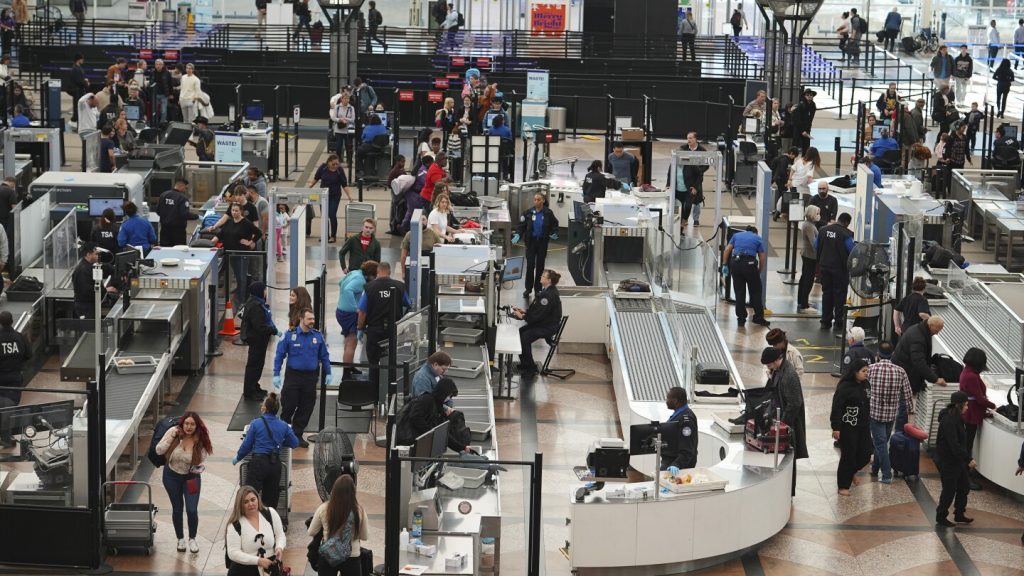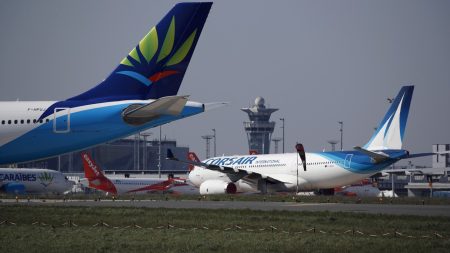American Airlines experienced a nationwide ground stop due to a technical issue, disrupting flights during the busy Christmas travel season. The Federal Aviation Administration ordered the ground stop after the airline faced difficulties with its flight operating system, affecting various airline operations. This caused delays and cancellations across American’s major hubs, with only 36% of flights leaving on time. Despite the issue, American Airlines operations resumed after about an hour, with no reports of significant chaos beyond the normal heavy travel day.
Passengers expressed frustration on social media over missed connections and lack of assistance from the airline. One traveler mentioned missing a family Christmas party due to repeated delays, highlighting the challenges faced by individuals trying to reach their destinations during the holiday season. Flight-tracking data showed that a significant number of flights were delayed, with Dallas-Fort Worth, New York’s Kennedy Airport, and Charlotte experiencing the most delays. Meanwhile, FlightAware reported delays and cancellations, emphasizing the impact of the technical issue on the airline’s operations.
As the travel disruptions unfolded, winter weather threatened to exacerbate the situation, with rain, snow, and freezing rain affecting various regions across the U.S. The Pacific Northwest experienced significant precipitation, while the South saw showers and thunderstorms. Freezing rain was reported in the Mid-Atlantic, and snow fell in New York, adding to the challenges faced by travelers during this busy period. The combination of technical issues and adverse weather conditions created a complex travel environment for holiday travelers.
Holiday travel during peak periods poses unique challenges for airlines and passengers alike, with the potential for disruptions to escalate quickly. Airlines such as Southwest and Delta have faced significant issues in the past due to technology outages or weather-related problems. Amid a busy travel season, flight crews and travelers must navigate through delays and cancellations, with only larger airlines having the capacity to rebook passengers on alternate flights. The introduction of a Transportation Department rule requiring automatic cash refunds for cancellations or delays provides some relief for affected passengers.
Despite the disruptions, airlines expect to have their busiest days around the holiday season, with millions of travelers passing through airports over the course of several days. The Transportation Security Administration anticipates screening a significant number of passengers during this period, with airlines preparing for peak days later in the week. While air travel remains high, AAA reports that the majority of holiday travelers will opt for road trips, emphasizing the importance of adaptive travel plans amid changing conditions.
As travelers navigate through holiday travel challenges, gasoline prices remain steady compared to the previous year, providing some relief for those driving to their destinations. Electric vehicle charging costs vary by state but offer an alternative for environmentally conscious travelers. Transportation data suggests longer travel times on highways during the holidays, with some major metropolitan areas expected to experience significant delays. The combination of technical issues, weather disruptions, and holiday traffic underscores the unpredictable nature of holiday travel and the need for flexibility and resilience among travelers and airlines alike.















